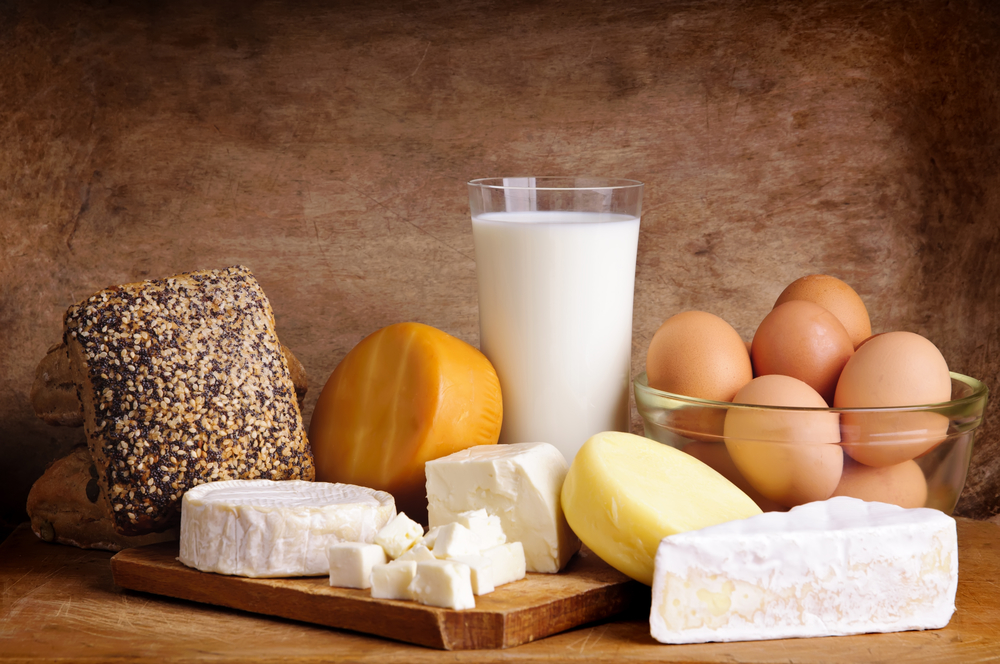Food sensitivities can create many undesirable symptoms in the body, such as tissue swelling (hands, ankles and/or feet), bloating (abdomen, puffy face or double chin), watery eyes, running nose (especially right after eating), nasal congestion, heartburn, headaches, achy or stiff joints and cravings for certain types of foods. These symptoms oftentimes don’t appear right away, making it more difficult for the sufferer to correlate a certain food with a reaction.
With all the bloating and swelling that takes place from food sensitivities, it is no wonder that many people may be carrying around an extra 10‐25 pounds of “false fat.” “False fat” is not really true adipose (fat) tissue but is created from extra fluid and gas that forms by delayed food reactions.
“False fat” will make you look and feel heavier and will only be lost if the offending food(s) are eliminated. Following is a list of seven foods that are the most common culprits related to delayed food reactions: dairy products, wheat, soy, corn, eggs, peanuts, and sugar. Looking at the list, it becomes clear that the foods most people consume on a regular basis are the most allergenic.
Helpful tips to aid in preventing food sensitivities:
Eat a Greater Variety of Food:
The average American obtains 75% of their calories from the same 10 foods (Hass 33). When consuming the same foods over and over, we eventually weaken our ability to digest them. Varying the foods in the diet will ease digestive stress and help to keep sensitivities out of the picture.
Eat Whole Foods
Packaged and highly processed foods are devoid of nutrients and often contain chemical additives which put an additional burden on the detoxification system. Increasing whole foods, which are as close to nature as possible, will support overall good health.
Eat More Fiber
Foods that are high in fiber help to pull toxins out of the body and also literally keep things moving. When the body is unable to eliminate properly, undigested food sits in the colon causing inflammation and irritation that can lead to food sensitivities.
Eat Less
When we over consume food, or in other words eat until we are “stuffed,” our digestive system becomes overwhelmed and does not function properly.
Chew Your Food
Completely chewing food before swallowing eases digestive stress and facilitates proper digestion.
Drink In‐Between Meals
Focus on consuming liquids between meals, not with meals, so stomach acid is not diluted when eating. Drinking around 4 ounces of water every half an hour between meals is ideal.
Another interesting aspect of food sensitivities is that people are often sensitive to their favorite foods. Food reactions can cause the body to produce its own natural “feel good” endorphins, which is partly why people can become addicted to certain foods. The “feel good” high created by elevated endorphins levels will eventually lead to a crash that creates a craving for the foods that caused the problem in the first place. It turns into a cycle that can have devastating effects on both over health and weight


